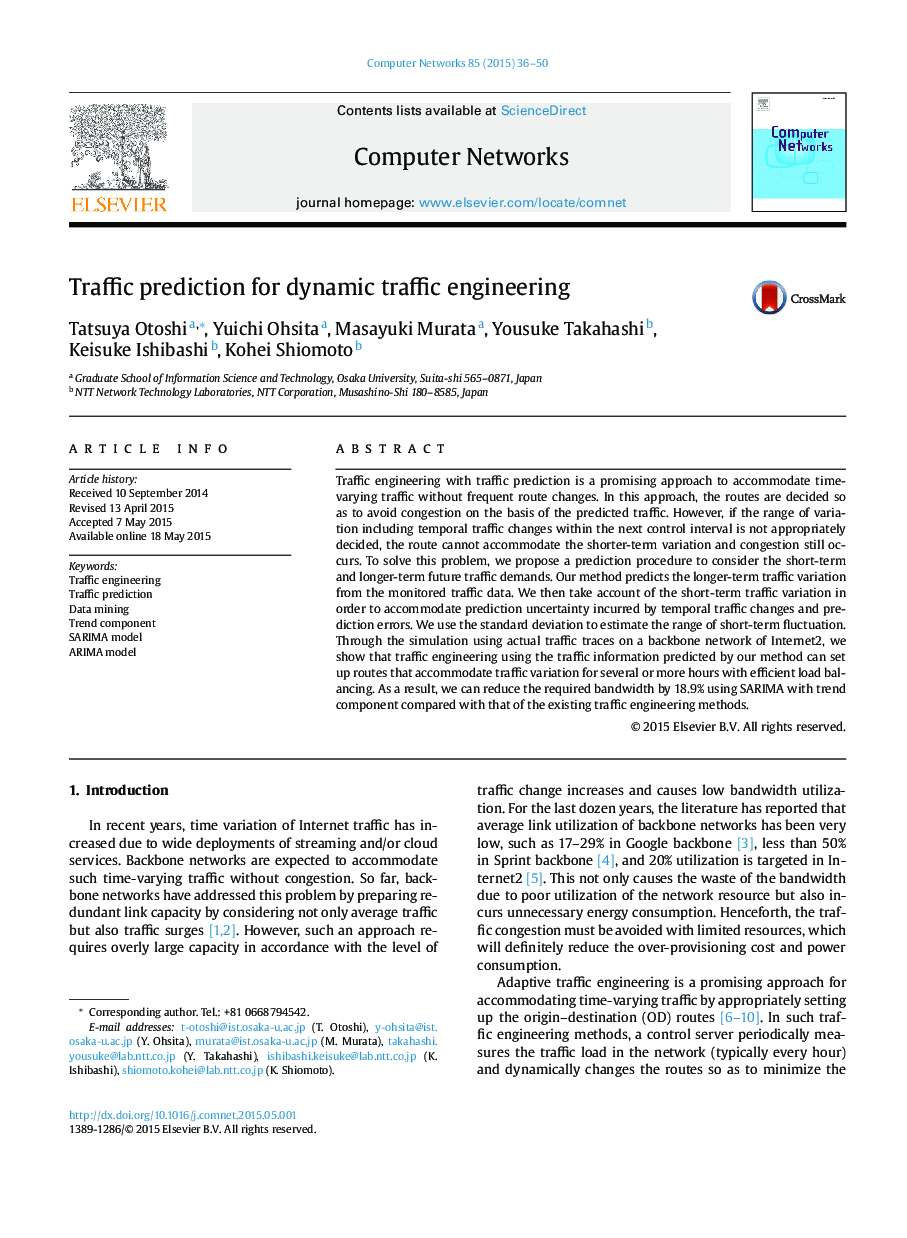| Article ID | Journal | Published Year | Pages | File Type |
|---|---|---|---|---|
| 452830 | Computer Networks | 2015 | 15 Pages |
Traffic engineering with traffic prediction is a promising approach to accommodate time-varying traffic without frequent route changes. In this approach, the routes are decided so as to avoid congestion on the basis of the predicted traffic. However, if the range of variation including temporal traffic changes within the next control interval is not appropriately decided, the route cannot accommodate the shorter-term variation and congestion still occurs. To solve this problem, we propose a prediction procedure to consider the short-term and longer-term future traffic demands. Our method predicts the longer-term traffic variation from the monitored traffic data. We then take account of the short-term traffic variation in order to accommodate prediction uncertainty incurred by temporal traffic changes and prediction errors. We use the standard deviation to estimate the range of short-term fluctuation. Through the simulation using actual traffic traces on a backbone network of Internet2, we show that traffic engineering using the traffic information predicted by our method can set up routes that accommodate traffic variation for several or more hours with efficient load balancing. As a result, we can reduce the required bandwidth by 18.9% using SARIMA with trend component compared with that of the existing traffic engineering methods.
